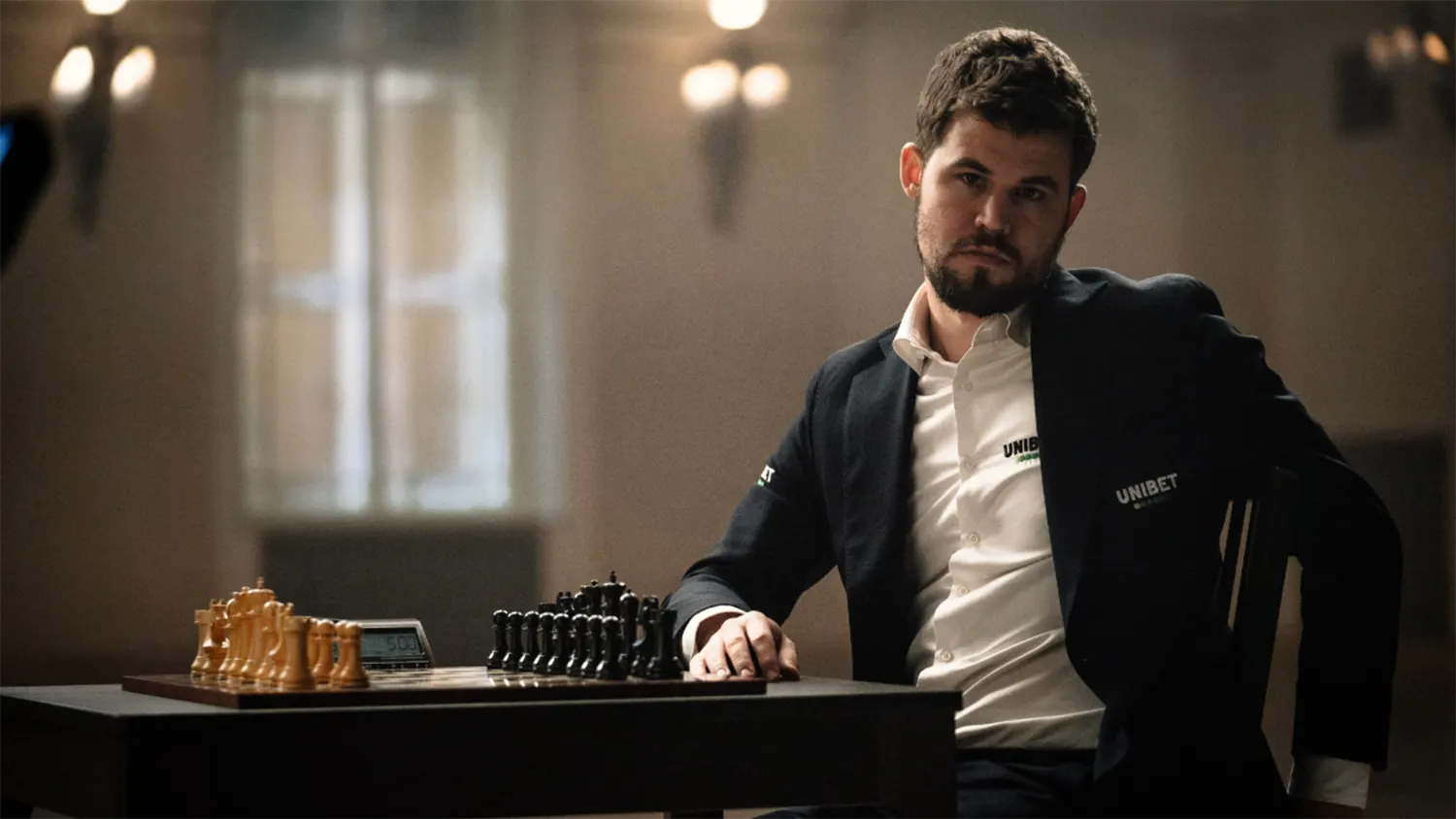
The world of chess shot into the limelight with the recent popularity of The Queen’s Gambit, a new NetFlix series. We spoke to the World Champion and Unibet brand ambassador Magnus Carlsen about the popularity of Chess after the series and his views on the future of the sport.
The fictional smash hit series The Queen’s Gambit has ignited interest in the game. How much can you identify with the show and how it portrays Chess?
It is simply a great series. Meticulous attention to detail including the use of relevant chess openings, combined with a gripping story and interesting characters. Chess is a theme used in many movies, but we are not used to the accuracy and credibility with which The Queen’s Gambit portrays chess details. It is impressive even compared to the quality seen in actual documentaries about former chess stars and World Champions.
Do you think the show will inspire more women to take up Chess and how does the culture support and accommodate more females?
We have already seen that The Queen’s Gambit has increased interest in chess in the general public worldwide, and no doubt this will translate into more people taking up our beloved game. I hope it will increase women’s participation in chess at every level. Any profession or sport dominated by one of the sexes is in significant ways less accessible to the other sex. The Queen’s Gambit can be one important contribution, but I hope we can make chess attractive to more women in other ways.
Why do you think Chess players, on a competitive level, are mostly men? Is this something that is debated within the Chess community?
Male prevalence in chess has been discussed and analysed extensively within the chess community and also in academia. The headlines are often stolen by a few controversial statements made by former elite players, and to some extent, this is, unfortunately, representative of part of the discourse. But, in general, I think most people understand that this is a very complex issue. Most important is probably sheer numbers. More boys than girls learn chess, and many more men than women spend the necessary time on chess to become a master player. This translates into male prevalence at an elite level.
We see some similarities with young women who are interested and skilled in technologies but might not pursue a career in Tech. Why do you think women might not continue playing Chess on a more advanced level and what could be done to encourage them?
Critical mass is an issue. With too few women in chess, many of those in the chess community miss the social aspect of having enough close friends and a feeling of belonging within chess. But we should ask women about this, both within the chess community, those who drop out and women outside of chess.
I believe online chess can be a significant equaliser. Both women and men are, to some extent, intimidated by playing the opposite sex. Online chess can be practised anonymously, and it can also be a great tool to investigate the intimidation factor by comparing performances with and without knowledge of the sex of your opponent.
Any advice for someone who recently got motivated to learn the game on how to get started? Any good tips for young people in particular?
There are a number of good apps and online playing sites available to anyone with a smartphone or a computer with an internet connection. Within the Play Magnus Group we have the playing site chess24, apps and e-learning tools (Chessable) and an online teaching marketplace (CoChess). In the Play Magnus App, you can play against a simulated version of me at different ages. Even most beginners will beat me handily at age 5.
Partly thanks to NetFlix and the pandemic, online chess has increased in popularity. How is the game different when played live vs online?
Playing online we experience time differently than over the board. I really like to play Rapid chess: Blitz chess and Bullet chess online, while classical chess with long time controls somehow feels too slow and artificial online. I think online chess will play an even larger role in the future, as there is generally a broader spectator interest for rapid time controls. One exception is the popular bi-annual classical World Championship match due to its long and rich tradition.
Last February you launched a marketing campaign together with Unibet: ‘Luck is no coincidence’. In Queen’s Gambit, Beth Harmon spends a lot of time studying the game: how do you, as the real-life highest-rated chess player in history, prepare for a tournament?
Early in my career I read chess books and played online chess every day in addition to playing a lot of tournaments. During tournaments, I spent time on opening preparation in addition to the daily, often long games. Sometimes you think about the game played for hours in the evening, and at night as well. As an elite player, I spend more time between tournaments simply thinking about chess either actively or at the back of my mind, and less time reading books and playing online.
In chess, you tend to get more 'luck' if you study harder and know more.
Which game is your most memorable one? And why?
I’m still searching for the perfect game, while it is easier to point at three decisive injunctions in my career. The best feeling I’ve had was probably winning the Norwegian Championship Under 11. I still remember the exhilarating feeling. I usually say that the most important tournament is the next one. While looking back, the most important victories in my career are probably the 2013 Candidates tournament and the 2013 World Championship match.

